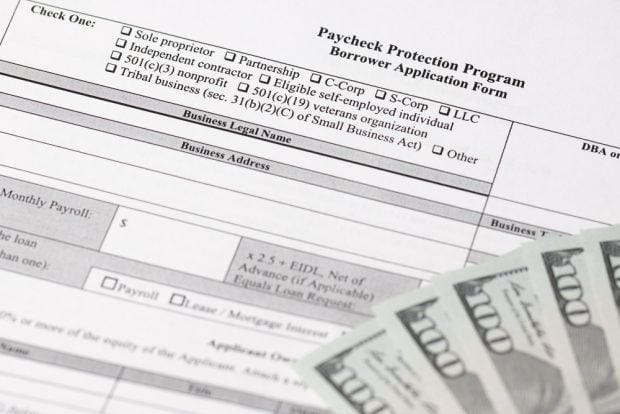 Source: Shutterstock.
Source: Shutterstock.
Despite allegations of billions of dollars of waste, fraud and abuse in the Small Business Administration's Paycheck Protection Program, the agency has not conducted a comprehensive assessment of the risks involved in the program, the Government Accountability Office said in a new report this week.
"According to SBA officials, given the rapid response required to execute the program, they conducted an informal fraud risk assessment," the GAO said.
Recommended For You
The GAO said that was not an excuse for the agency not systemically addressing the problems.
"We recognize the importance of providing timely emergency loan assistance to small businesses," the GAO said. "Conducting a fraud risk assessment need not hinder program delivery and can in fact facilitate program goals by ensuring that taxpayer dollars and government services serve their intended purposes."
The PPP was rolled out quickly last year in an effort to provide small businesses with money to stay in business amid the coronavirus crisis.
The new GAO report evaluated the federal government's pandemic response in dozens of areas, ranging from health to education.
The PPP program is in its second phase; it was set to expire on March 31. However, President Biden this week signed legislation extending the life of the program until the end of May. The measure also gives the SBA until June 30 to process loans that are in the pipeline on May 31.
Credit unions and banks have complained that the SBA is taking longer to approve loans in the second phase of the program and the SBA has said the delay, in part, is caused by efforts to minimize fraud.
Indeed, the GAO said the SBA is implementing compliance checks on loan and borrower information before the loan is approved. There have been reports that the SBA had approved many PPP loans to borrowers on the federal government's "Do Not Pay" list.
The GAO reported that an independent auditor was not willing to offer an opinion on the SBA's FY20 financial statements because of problems with the PPP program. The auditor reported that there were more than two million PPP loans, worth $189 billion, that had been flagged for not being in conformance with federal law. The auditor also said there were more than 896,000 errors made by lenders that were not reviewed by the SBA.
GAO reported that from May 2020 to the end of February, the Department of Justice had announced more than 100 fraud cases associated with PPP loans and had charged at least 170 people with crimes associated with the fraud allegations.
Meanwhile, credit unions are continuing to make PPP loans in the second phase of the program, according to statistics released by the SBA on March 29.
The SBA reported that during the current phase of the program, 836 credit unions with assets of less than $10 billion have made 109,326 PPP loans, worth almost $4.2 billion. The SBA also reported that eight credit unions with more than $10 billion in assets have made 11,600 PPP loans, worth $360 million.
However, no credit union appears on the list of the 15 most active PPP lenders, according to the SBA.
© Touchpoint Markets, All Rights Reserved. Request academic re-use from www.copyright.com. All other uses, submit a request to [email protected]. For more inforrmation visit Asset & Logo Licensing.






